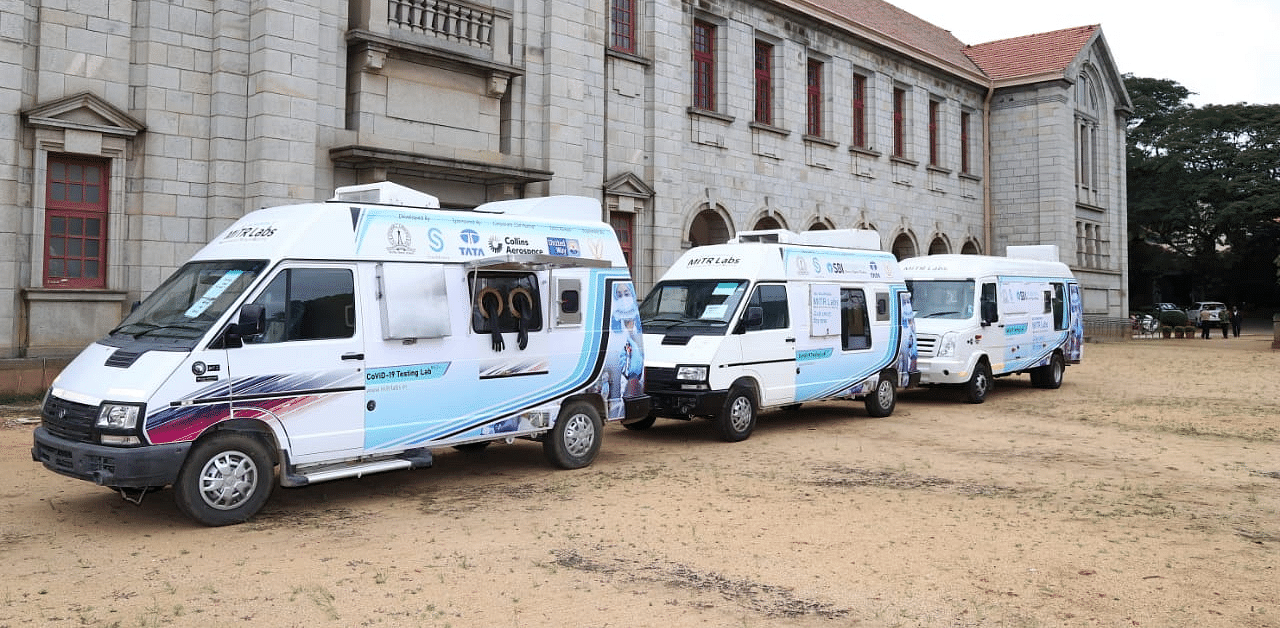
A three-unit mobile testing unit developed by researchers at the Indian Institute of Science (IISc) was officially handed over to the Bangalore Medical College and Research Institute (BMCRI) on Wednesday.
Professor Sai Shiva Gorthi, of the IISc’s Department of Instrumentation and Applied Physics, who helped design the units, said that the development had originated out of a need to plug critical gaps in Covid-19 diagnosis and testing across the country.
The units, collectively dubbed the Mobile Infection Testing and Reporting labs, have been in development since March and can carry out 320 RT-PCR tests per day, 80 of them in one go.
The unit, Dr Gorthi explained, is currently spread across a Tata Force Traveller van which is designed to collect swab samples from areas, and two Tata Winger vehicles — one to carry out RNA extraction and the other to conduct the RT-PCR test.
The BSL-2+ compliant lab will allow healthcare workers to collect, process and test samples using RT-PCR onsite, and upload results directly to the ICMR portal.
The IISc said that the turnaround time to obtain results with these mobile labs is between four and 12 hours, a significant reduction from the two to ten days taken to get results in traditional medical diagnostic labs.
Arun Balasubramanian, the director of an IISc-based startup ShanMukha Innovations, which manufactured the lab setup within the vans, said the mobile unit would likely carry out 100 tests per shift initially. "Most labs operate two shifts," he said.
However, sources specified that shortages of government staff would likely hinder the operationality of the unit. On Wednesday afternoon, shortly after the vehicles were inducted into government service, there were no government ambulance drivers to initially drive the vehicles to BMCRI, a source said.
ShanMukha Innovations and IISc trained three staffers to operate the mobile unit, Balasubramanian said. He added that the three-vehicle system costs about Rs 1.5 crore and had been built through CSR funding. The units were handed over to the government free of charge.
The IISc said the office of the Principal Scientific Advisor to the Central government played a key role in facilitating CSR support for the endeavour. Contributions were received from Tata Motors for two mobile vans. Additional funding was received from Collins Aerospace and Borqs software solutions.